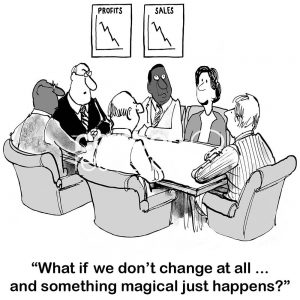Podcast: Play in new window | Download
 I have tons of people asking me to activate the capacity of self-discipline, and will power. And although I CAN activate those capacities, they don’t come ‘online’ unless your behavior already proves that you can use them… I.e. that you have SOME will power. And most people don’t… we’ll look at what you can do about it in this article.
I have tons of people asking me to activate the capacity of self-discipline, and will power. And although I CAN activate those capacities, they don’t come ‘online’ unless your behavior already proves that you can use them… I.e. that you have SOME will power. And most people don’t… we’ll look at what you can do about it in this article.
You had dreams, you had nightmares, you had aspirations, and you had many disappointments.
You watched adults and you KNEW that your life will be as good or better than theirs.
But when you got to adulthood it never worked out.
Here are a few real examples for how weak-willed identity developed:
P was a beautiful little boy. He was funny, and in his first year in kindergarten he worked real hard, and at the end of the year he got an award.
Come the end of the second year… award ceremony, and little Paulo is waiting for his award, but his name is not said in front of the room.
Little P cries, so loud, they have to call his mother on the phone to come and take the wailing boy home.
What happened? Little P took the results for granted: he didn’t do any work in the second year…
He is now an adult. He continues to go from feast to famine… from doing what makes success to completely slacking off…
—–
Imagine it’s Halloween. Little H spots a lot of bags of candy in his father’s car… and reaches for his favorites, tootsy rolls. His father slaps her hand and says: it is not for you… it is for the trick or treaters.
Not much later H sees her mother in bed, and everything is brought to her, breakfast, tootsy rolls, everything she likes. She decides that the way to get what she wants is to be in bed and have it brought to her… she will be like her mother.
She doesn’t realize that the mother is pregnant, and has to stay in bed to keep the baby.
She is now an adult. Her big today is to walk to the end of the alley behind her house… It’s only a few hundred yards, but she can only hope that she can make it there and back.
She is still trying to charm the world to bring everything she likes to her bed.
———
B was a beautiful child, but he had asthma. His mother wanted him alive and well, protected him, did things for him, so he learned that the way to have a good life is to be weak, and have others do for you.
He is now an adult… He never learned to do anything hard… it didn’t fit his playbook. His strategy.
———
T was a lovely baby girl. But she had a lot of bad dreams, nightmares. When she woke up in the middle of the night, she got up and strolled over to her parents’ bedroom and climbed into bed with them… disrupting their sleep.
No matter how many times they protested, she kept on doing that… getting what she wanted: not having to sleep alone.
She is an adult now, and she still forcefully takes what she wants, not giving any thought of whose toes she steps on… only noticing the frowns, the arguments, the name calling, the protestations.
She still hopes for a different outcome, hopes to be welcomed to take whatever she wants.
——————-
I didn’t make up these stories. They are stories of my some of my students who are stopped by some invisible hand from reaching to success… to whatever success would mean to them.
If you look, the only thing that they seem to share is that they are not successful… but the behavior and the psychological picture underneath seems to be very different…
 So what is the commonality for people who don’t succeed in spite of their obvious abilities.
So what is the commonality for people who don’t succeed in spite of their obvious abilities.
Because, don’t be mistaken, these are able, intelligent people… and yet.
We could point out that what they said about how life works is what makes them do what they are doing, doing what doesn’t work. But then again, they could change their minds, right? But they could never change their minds about that… and that is the commonality really.
Why? Why could not they change their minds?
When I look, changing your mind is the hardest thing you’ll ever attempt.
Why? Changing your mind is hard. Every step of the way.
- First you would need to be willing to have been wrong all your life. Hard, painful, makes you look bad, ouch.
- Second: you would need to learn new ways of thinking and acting, and you don’t even have brain circuits in your brain to do that: you ultimately never learned anything hard…
- And third: what I am most interested right now, because I hope that it’s the ultimate cause: their Amygdala, the center of ancient emotions, fight or flight, fear, avoidance, is dominating their behavior.
Hard? let’s run… says the Amygdala.
And no matter what the prefrontal cortex decides, the behavior doesn’t change, because there is only tenuous, weak connection between the prefrontal cortex and the emotions’ center, the Amygdala.
What connects the two areas of the brain is GABA fibers. The stronger your GABA fibers the more will-power you can have: the decision can override the emotional knee jerk reaction of avoiding anything that is hard, unpleasant, or painful.
Your TLB
I call that capacity TLB, and I call the behavior dominated by the Amygdala the behavior of a Twitchy Little Bastard behavior.
I measure that in the Starting Point Measurements.
The good news about the TLB is that it can be trained.
Like everyone, I was born with a TLB score of 0. By age 6 I had a TLB of 6, by age 34, my TLB was 12, by age 38 it fell back to 10…
In the last almost 40 years, I managed to grow it to 70.
I am still experiencing, in certain areas, a lack of ‘will power’, meaning: a lack of connection between what I decide and my behavior. It comes out in two areas mainly: how I eat, and how I sleep. So we are in this together… all humans. Nothing to be ashamed of.
No matter how much TLB I have in other areas, my life still doesn’t work as well as it could, because of my lack of TLB in those two important areas of life.
Life, the good life, has four pillars it rests on: health, wealth, love and fulfillment.
If any of those pillars is shaky, you don’t experience the good life…
So how do you get stronger TLB?
This is a theory, unproven as of yet.
The method is to increase the difficulty, the painfulness, the unpleasantness very gradually.
Much like the length of the days changes very gradually, so you can get used to it.
First the change is so small, you don’t even notice it. And by the time you notice it, your tolerance to the change has increased two-three-fold… so you can be OK with it.
In my experimental program (The Hero Program) I help you create incremental steps, and do them.
The point is to make them easy but not too easy.
If you have a big issue walking to the end of the alley, for example, then dial it back.
Make it for a few days to climb the stairs (if you have stairs in your house) or walk out to the curb and back a few times a day, until that is not an issue any more.
It works both on your muscles, and on your GABA fibers… you are building your prefrontal cortex’s dominance over your Amygdala.
Your beliefs, your identity, your worldview you have been wanting to change will slowly change with the different results you have.
One of the areas that I conquered latest is learning things where I needed to follow instructions.
I am learning disabled… or so I felt. I had a hard time understanding the instructions, and then following them.
It is still my knee-jerk reaction, feeling stupid is one of the most unpleasant feelings EVER. But today I can just wait out the desire to quit, and my prefrontal cortex can take the rein again, and I stay in the game, and I, slowly but surely, follow instructions.
Yeah, I am sure you didn’t expect me to tell you that anything is difficult for me, did you?
Each and every person has some areas that are difficult… and seem impossible. No matter how high they have climbed in the public eye.
It can be their relationship, their health, their fulfillment… And unless they can strengthen the prefrontal cortex-Amygdala connection, they will never experience the good life… even if they look happy to you on Facebook, or when you see them talk on the podium.
So you are not alone…
 You can, over time, become a high achiever, someone whose ‘will-power’ is legendary, or at least enough to get the important things accomplished in life…
You can, over time, become a high achiever, someone whose ‘will-power’ is legendary, or at least enough to get the important things accomplished in life…
…in the areas of health, wealth, love and fulfillment.
Can you go it alone?
I doubt it, even I didn’t do it alone. I did it in courses that were, thankfully, asking the students to get things done by a certain time and post the result for everyone to see.
Really.
Or my Sunday Rants talking partner… when it came to behavioral issues of which I have had a disproportionate share in. I changed them, incrementally in the past 14 years.
Or my students who have forced me to become kinder, more patient, more understanding, and better at doing my job.
So I don’t recommend that you go at it alone.
Without someone holding you to account, your Amygdala will win… 🙁
In the experimental program I am setting up, I am going to have you set out an accomplishment or two, and create tiny steps to get closer to accomplishing them.
The emphasis is setting up tasks that are unpleasant, and are somewhat over your level of tolerance, pain tolerance, patience, but not so much over, that you can’t do it… or that you’d rather die than do it.
I am working on one area myself… so you’ll be able to see how I do it.
I’ll see what you are doing every day, and I’ll step in if and when you need correction, nudging, when you are about to get off-track a little tweaking, or encouragement, I’ll be there.
The other thing I am going to catch (I was reminded of this by a student who emphasizes how much she hates herself for what she does) is self-deprecation, self-hate, putting yourself down, name calling. It is an avoidance move that you use to avoid actually having to do what you see you need to do. And excuse…
Self-hate… I probably should write an article about just that… how it is unproductive, and creates more of the same. Like a virus or cancer, only caring about their own proliferation, not about you.
For the first time in my life, I decided to give people, give you a chance to try before you commit.
- The program is delivered in a forum (online), where you post the work you set out the night before, daily and then mark it done or not done at the end of the day.
That is where I keep an eye on you making you get done what you set out to do, or reduce the size of the tasks.
Eventually I’ll have moderators, but not yet.
- The second part of the program is the ‘huddle’, a weekly get-together, either on zoom or on a webinar… probably on Wednesdays. Your vote will count.
There we’ll work on strengthening the community and the support, and I’ll answer your questions, and train you if I see you need training.
The goal is to strengthen your prefrontal cortex’s dominance, your will-power, and your ability to do what you said you would do, i.e. your integrity and self-love.
Your first payment, if you are accepted, gives you access to the whole program for 30 days. You can cancel any time. After that you’ll play weekly.
if you don’t yet have your starting point measurements, I’ll measure it for you for the first week’s payment
Here is a section where I quote from articles…
1. The three brain regions are as follows:
Reptilian or Primal Brain (Basal Ganglia)
Paleomammalian or Emotional Brain (Limbic System)
Neomammalian or Rational Brain (Neocortex) or in our work the prefrontal cortex where all choices, all decision making happens.
But unless the connection to the Limbic System is strong, GABA fibers, your animal nature wins.
2. … the limbic system (which consists of various component brain structures, such as the amygdala and hippocampus), then the neocortex (which is implicated in conscious thought, language and reasoning).
3. The prefrontal cortex is essential for the planning and execution of complex new behavior, speech and logical reasoning, short-term memory and preparatory set.
4. How can I make my prefrontal cortex stronger?
- Resist Instant Gratification. …
- Go Beyond Your Comfort Zone. …
- Learn New Material. …
- Brainstorming with no limits. …
- Get Enough Sleep. …
- Meditation. …
- Clean Up Your Diet.
5.How do you activate the prefrontal cortex?
Create silly sentences, acronyms and cartoons to help remember things. These skills call on the prefrontal cortex and Executive Functions to access working memory. By integrating jokes, riddles and puns you can also learn to think flexibly by shifting between different meanings and associations of words. Play!
6. How stress affects the prefrontal cortex?
Basic research has found that high levels of hormone release during stress rapidly impair the cognitive functions of the prefrontal cortex, while strengthening the emotional and habitual responses of the amygdala and basal ganglia.
7. When stressed which part of the brain is most active?
The prefrontal cortex is a big region in the front of the brain. It can be called the control center of our brains because it helps to control our thoughts and actions. The main job of the prefrontal cortex is to control our emotional responses to stress so that we do not get too stressed out.
8. Can you trick your brain into growing your ability to get things done?
PPS: If you are willing to sacrifice certainty for a disproportionate result… this may be the course you want to take.
